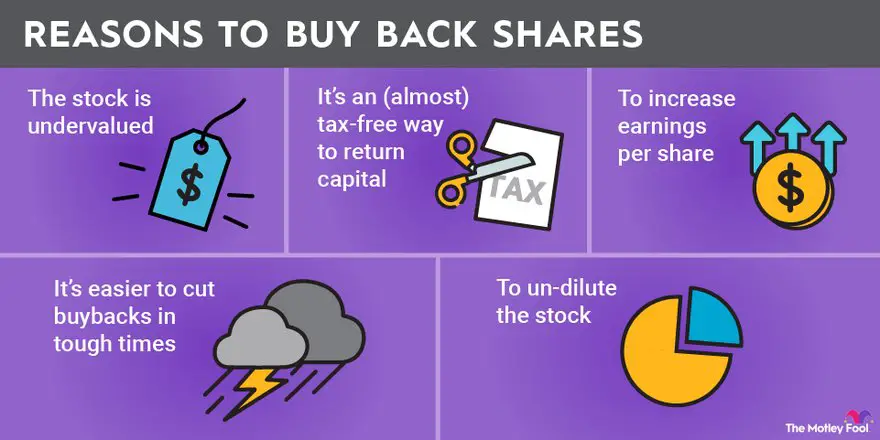Looking to take a career break but worried about managing your finances? Don’t fret, because in this article, we’ll guide you on how to manage money during a career break. Whether you’re planning to travel, further your education, or simply take some time off, we’ve got you covered with practical tips and strategies. From budgeting wisely to exploring alternative income sources, we’ll help you navigate this financial journey smoothly. So, if you’re eager to ensure your financial stability during your career break, keep reading and find out how to manage money during a career break.
How to Manage Money During a Career Break
Taking a career break can be an exciting and transformative experience. Whether you are pursuing personal goals, traveling the world, or simply taking time off to recharge, managing your finances during this period is crucial. To ensure a smooth transition and optimal financial well-being, here are some valuable tips to help you manage your money effectively during a career break.
1. Create a Budget
Start by creating a comprehensive budget that outlines your income, expenses, and savings goals. A budget will serve as a financial roadmap, guiding your spending decisions and helping you prioritize your financial responsibilities. Consider the following steps when creating your budget:
- Track Your Expenses: Keep a record of all your expenses for a few months to identify your spending patterns accurately. This will help you determine areas where you can reduce unnecessary costs.
- Assess Your Income: Take into account any income you expect during your career break, such as savings, investments, or part-time work. This will give you a clear picture of how much money you have available.
- Set Realistic Goals: Determine your financial goals for the duration of your career break. Whether it’s saving for emergencies, travel, or other expenses, be clear about what you want to achieve.
- Allocate Funds: Divide your available funds into categories such as housing, transportation, food, leisure activities, and savings. This will help you stay on track and avoid overspending.
2. Minimize Fixed Expenses
During your career break, reducing your fixed expenses can significantly alleviate financial stress. Consider the following strategies to minimize your monthly obligations:
- Downsize Your Accommodation: If possible, consider moving to a smaller, more affordable place or renting out your home while you are away. This can help you save on rent, utilities, and maintenance costs.
- Eliminate Unused Subscriptions: Review your subscriptions and cancel any that you won’t be using during your career break. This can include gym memberships, streaming services, or magazine subscriptions.
- Negotiate Bills: Contact your service providers, such as internet or insurance companies, and negotiate better rates or discounts. It’s worth exploring options to reduce these fixed expenses.
3. Plan for Health Insurance and Emergencies
Taking care of your health and addressing potential emergencies should be a priority during your career break. Consider the following steps to ensure you are financially prepared:
- Health Insurance Coverage: Evaluate your health insurance options during your break. If your employer-sponsored coverage will be terminated, explore alternatives such as COBRA, individual plans, or government programs.
- Emergency Fund: Establish or maintain an emergency fund to cover unexpected expenses or income gaps. Aim to save at least three to six months’ worth of living expenses to provide a financial safety net.
- Travel Insurance: If you plan on traveling extensively during your career break, consider purchasing travel insurance to protect yourself from unforeseen circumstances such as trip cancellations, medical emergencies, or lost luggage.
4. Generate Passive Income
During your career break, exploring options to generate passive income can help supplement your savings and provide ongoing financial support. Consider the following possibilities:
- Rent Out Property: If you own property, consider renting it out during your career break to generate rental income. This can help cover mortgage payments and other expenses.
- Invest in Dividend Stocks: Invest in stocks that pay regular dividends, providing you with a steady income stream. Consult with a financial advisor to determine the best investment options for your situation.
- Create Digital Products: If you have specific skills or knowledge, consider creating and selling digital products, such as ebooks, online courses, or music. These products can generate passive income while you focus on other aspects of your career break.
5. Take Advantage of Travel Discounts
If your career break involves traveling, it’s essential to find ways to stretch your budget without compromising your experiences. Consider the following tips to make the most of your travel finances:
- Research Flight Deals: Utilize travel websites and apps to find the best flight deals and discounts. Be flexible with your travel dates and consider exploring alternative airports to save on airfare.
- Accommodation Alternatives: Consider affordable accommodation options such as house-sitting, hostels, or vacation rentals. These alternatives can often provide unique experiences while being more budget-friendly than traditional hotels.
- Local Transport: Research local transportation options at your destination. Utilize public transportation, walk, or rent bicycles to save money on commuting.
- Explore Free Activities: Take advantage of free attractions, walking tours, and local festivals to enrich your travel experience without spending a fortune.
6. Stay Connected and Seek Support
While on a career break, it’s crucial to maintain connections and seek support to navigate financial challenges. Consider the following actions:
- Network: Stay connected with your professional network. Attend industry events, join online communities, and actively engage with colleagues to stay informed about job opportunities or freelance work.
- Join Social Groups: Seek support from like-minded individuals or groups who have gone through or are currently experiencing a career break. They can provide advice, share resources, and offer valuable insights.
- Consult Financial Professionals: If you are uncertain about certain financial decisions or need assistance in managing your money, consider consulting with a financial advisor. They can provide personalized guidance tailored to your specific situation and goals.
By implementing these strategies and maintaining a proactive approach to managing your finances, you can ensure a successful and financially stable career break. Remember, it’s essential to strike a balance between enjoying your time off and securing your long-term financial health.
Consider this when you start planning your career break
Frequently Asked Questions
Frequently Asked Questions (FAQs)
1. How can I effectively manage my money during a career break?
During a career break, managing your money efficiently is crucial to ensure financial stability. Here are a few tips to help you:
– Create a budget to understand your income and expenses.
– Cut down on unnecessary expenses and prioritize essential ones.
– Consider reducing discretionary spending and find ways to save money.
– Explore alternative income sources or part-time work opportunities.
– Set realistic financial goals and save accordingly.
– Consider investing your savings wisely to grow your wealth.
2. What steps can I take to save money during my career break?
To save money during a career break, you can follow these strategies:
– Analyze your monthly expenses and identify areas where you can cut back.
– Opt for cost-effective alternatives or discounts whenever possible.
– Plan your meals and cook at home instead of dining out.
– Reduce energy consumption to lower utility bills.
– Review your subscriptions and consider canceling unnecessary ones.
– Explore free or low-cost entertainment options.
3. Should I consider creating an emergency fund during my career break?
Yes, creating an emergency fund is highly recommended during a career break. An emergency fund acts as a financial safety net for unexpected expenses or emergencies such as medical bills or car repairs. Aim to save at least three to six months’ worth of living expenses to ensure you are prepared for any unforeseen circumstances.
4. How can I make the most of my savings during a career break?
To make the most of your savings during a career break, consider the following:
– Research and compare different savings accounts to find the best interest rates.
– Look for short-term investment options with low risk and decent returns.
– Diversify your investment portfolio to minimize risks.
– Consult with a financial advisor for personalized guidance.
5. Is it advisable to take up part-time work during my career break?
Taking up part-time work during a career break can be a good strategy to manage your finances and gain experience. It can help you generate some income and also keep you engaged in your professional field. Ensure that the part-time work does not hinder your ability to recharge and utilize the break effectively.
6. How should I handle my debts during a career break?
Managing debts during a career break requires careful planning. Here’s what you can do:
– Prioritize your high-interest debts and aim to pay them off first.
– Communicate with your creditors to negotiate better payment terms if needed.
– Look for ways to consolidate multiple debts into a single manageable payment.
– Seek professional help, such as credit counseling, if you need assistance in managing your debts effectively.
7. What should I do if I face financial challenges during my career break?
If you face financial challenges during your career break, consider these steps:
– Revisit your budget and identify areas where you can further reduce expenses.
– Explore government assistance programs or grants available for individuals on a career break.
– Consider part-time or freelance work to supplement your income.
– Seek support from financial advisors or career counselors who specialize in managing career breaks.
8. How can I prepare financially before taking a career break?
To prepare financially before taking a career break, keep these points in mind:
– Start saving well in advance to build a financial cushion.
– Evaluate your expenses and eliminate unnecessary ones.
– Pay off high-interest debts to reduce financial obligations.
– Research and understand the potential impact of the career break on your savings and future financial goals.
– Consult with a financial advisor to create a comprehensive plan to manage your finances during the break.
Final Thoughts
Managing money during a career break is crucial to ensure financial stability and peace of mind. Firstly, creating a detailed budget that includes all expenses and income sources can help track and control spending. Consider reducing non-essential expenses and finding ways to save money, such as cooking at home instead of eating out or canceling unnecessary subscriptions. Secondly, exploring part-time or freelance work can help supplement income and maintain financial stability. Additionally, it is essential to have an emergency fund to cover unexpected expenses. Lastly, investment strategies, such as diversifying assets or saving in a retirement account, can provide long-term financial security during a career break. By implementing these strategies, individuals can effectively manage their money and alleviate financial stress during this period.



